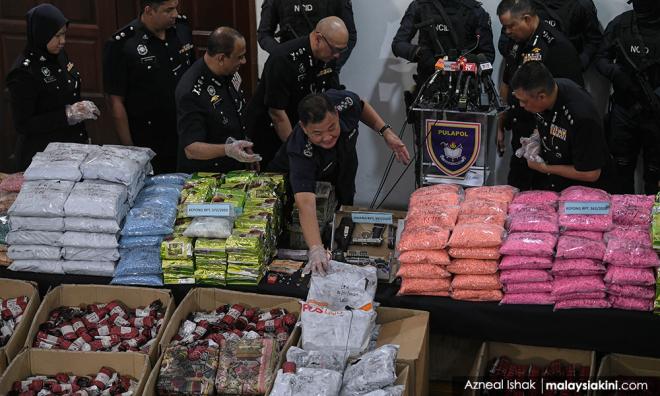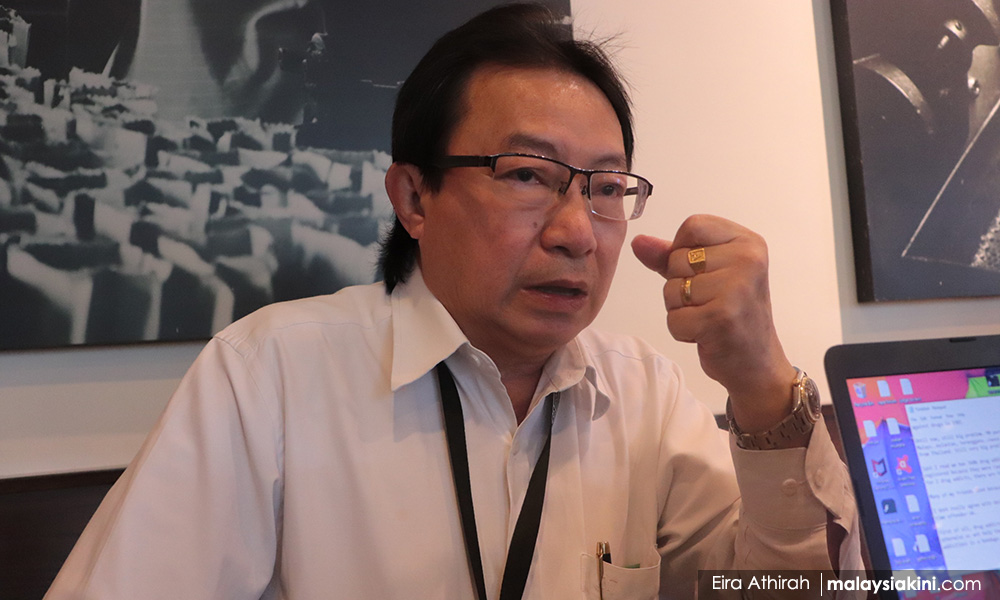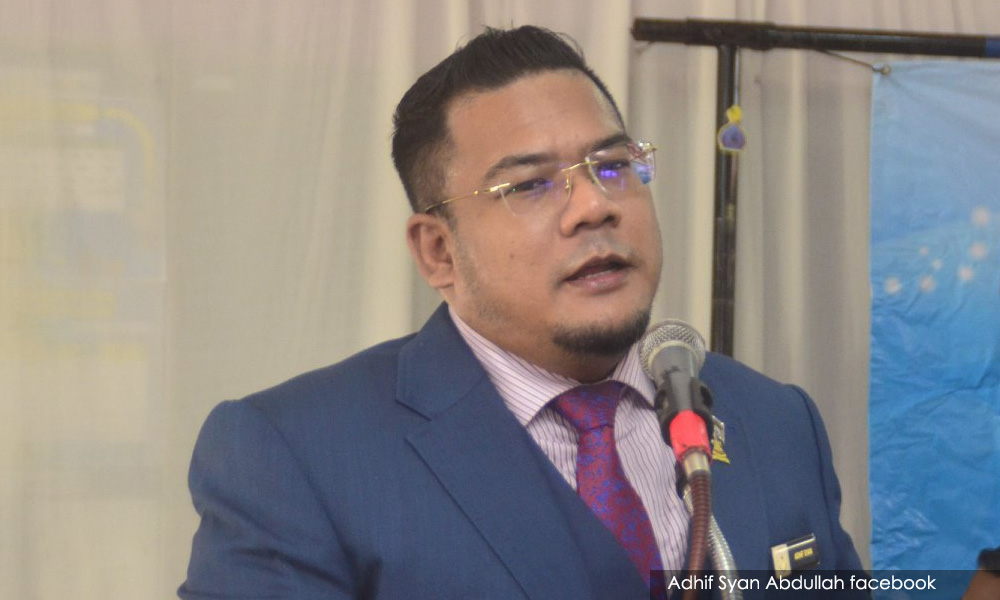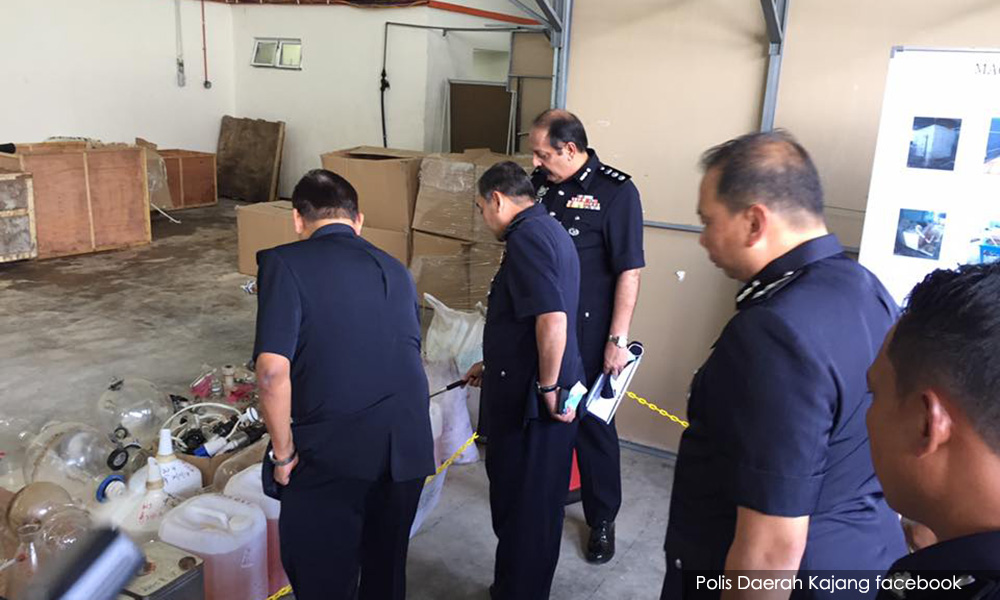
The story of Ang Tan Loong is a heart-warming one. The one-time gangster, jailbird and drug addict is now a successful businessman and a role model for the young and old.
“Well done” to writer Faisal Asyraf and Malaysiakini for the Malaysianskini series, which focus on Malaysians you should know. Ang’s experiences of going through hell and back are certainly worth sharing.
There are lessons to learn from Ang and his voluntary role as a dynamic social activist is one to be emulated.
I have not written on the subject of drugs for a while. Recent reports regarding this ugly societal scourge, which I find worrying and disturbing, compel me to do so again.
To start with, let us listen to Ang’s (below) take on the problem: "Last year, I read we have 160,000 drug addicts. This number is based on registered addicts who were caught. For every one drug addict in the system, there are four other unregistered addicts," he said, adding that many of his friends died of drug abuse.

That is to say, there are possibly 640,000 Malaysians who are drug addicts. I believe that is only a conservative figure.
I would not be surprised if the figure is over a million, although I do not have the official statistics. Then again, it will not be easy to have an official count, because, how on earth do you register all drug users? No drug user will voluntary come forward to say he or she is abusing drugs.
In August last year, the Customs Department seized nearly 3.7 tonnes of ketamine and cocaine, worth about US$161 million (RM676 million), in the country’s biggest drugs haul to date.
Customs director-general Paddy Abdul Halim said then that Malaysia was a key transit point for illegal narcotics, with authorities seizing record amounts of crystal methamphetamine in the past year.
The haul worth RM676 million warrants serious attention at the top. The question as to how Malaysia became a key transit point must also be tackled expeditiously. It is clear that something is seriously amiss at our borders.
Then came this warning of all warnings from Inspector-General of Police Abdul Hamid Bador in July last year.
"We accept the fact that drug abuse in this country is at a breaking point. If we do not tackle it now, the abuse will be on par with Colombia.”
The police chief was also saddened to learn that many of his men and women in blue were also abusing drugs, lamenting that if policemen who are supposed to help in eradicating the scourge are drug abusers themselves, they would not be of any help.

Two weeks ago, we also heard that a businessperson seeking government contracts has purportedly been identified by the police as the main person responsible for the drug-fuelled party that eventually saw the arrest of 17 individuals, including Dengkil assemblyperson Adhif Syan Abdullah (above) and other politicians.
Police sources said the businessperson provided women and drugs and organised gambling sessions for his guests, according to a news report.
So, drugs are also being provided to those within the corridors of power. The more we hear of such alleged sleazy deals, the more we cringe at the thought of how we also elect drug addicts and abusers to be in government.
All of us are worried and we share Hamid Bador’s concerns and anxiety.
What is perhaps most disturbing is that we seem to be at a loss on how to handle this long-standing evil, which just refuses to go away.
Perhaps we need to devise a new, holistic approach encompassing tougher measures to tackle it, now that the existing death penalty is not seen as a deterrent.
I am tempted to suggest that we go down the route of Philippines President Rodrigo Duterte’s merciless action against drug lords, but that would be unthinkable in Malaysia.
Now, it is not as if the authorities are not taking steps to combat the drug menace. They have, but unfortunately, without much success.
In the early 1980s, during Dr Mahathir Mohamad’s first tenure as prime minister, he had declared war on drugs, calling it “Public Enemy No 1”.
This was some four decades ago and today, it is clear that the campaign against the drug menace has yielded little success.

To imply that the police are not doing anything to contain the problem is unfair. They have conducted regular raids and arrested many runners and addicts.
But the ‘big fishes’ - drug barons and big-time traffickers - all seem to escape the dragnet of the police and other security personnel at the borders. These are the main characters we must zero in.
I believe that the police would surely have reliable information and the identities of known drug lords and their operations.
These drug kingpins are the ones who must be brought to justice and put away for the rest of their lives. But we hardly hear of any big names being revealed by the police.
A ‘name and shame’ tactic against drug lords is probably long overdue. In the past, police in some states had paraded big-time loan sharks in public. Those involved in both trades are the scums of society and we should treat them as such.
The MACC revelation this month that corruption at our border posts has eased smuggling activities must also be looked into seriously.
Security personnel manning our borders who are on the take should receive the same penalty as drug traffickers. That is the only way to put the fear of God in them.
Ultimately, there must be visible public pressure on the authorities to adopt new and effective ways to combat the drug menace.
It is quite apparent that the old methods are not working.
FRANCIS PAUL SIAH heads the Movement for Change, Sarawak (MoCS) and can be reached at sirsiah@gmail.com. - Mkini



No comments:
Post a Comment
Note: Only a member of this blog may post a comment.